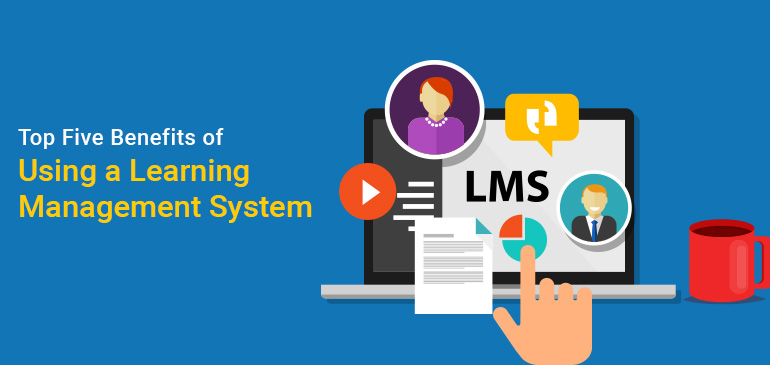The Benefits of Learning Management System
In today’s fast-paced world, organizations and educational institutions are increasingly turning to technology to enhance their learning and training processes. One such technology that has gained significant popularity is the Learning Management System (LMS). In this article, we will explore the numerous benefits of implementing an LMS and how it can revolutionize the way we learn and teach.
Improved Accessibility
An LMS provides a centralized platform for learners and educators to access learning materials anytime, anywhere. Whether you are a student, an employee, or an instructor, you can easily log in to the system and access the courses, resources, and assessments at your convenience. This flexibility eliminates the barriers of time and location, making learning accessible to a wider audience.
Enhanced Learning Experience
With an LMS, learners can engage with interactive multimedia content, such as videos, quizzes, and simulations, that cater to different learning styles. This variety of resources enhances the learning experience and promotes active participation. Additionally, learners can track their progress, receive instant feedback, and access additional support materials, fostering a self-paced and personalized learning journey.
Streamlined Administration
For educational institutions and organizations, managing and tracking learning activities can be a daunting task. However, an LMS simplifies this process by automating administrative tasks, such as course enrollment, progress tracking, and grading. This streamlines the overall administration, reduces manual effort, and allows educators to focus more on instructional design and personalized support.
Cost and Time Efficiency
Implementing an LMS can significantly reduce costs associated with traditional classroom-based training. With an LMS, there is no need for physical infrastructure, printed materials, or travel expenses. Additionally, learners can access the content at their own pace, eliminating the need for synchronous sessions, which saves valuable time for both learners and instructors.
Effective Performance Evaluation
An LMS enables organizations to track and evaluate learner performance effectively. Through built-in assessment tools, instructors can create quizzes, assignments, and exams to measure the understanding and progress of learners. The system generates detailed reports and analytics, providing valuable insights into learner performance, strengths, and areas for improvement. This data-driven approach facilitates targeted interventions and continuous improvement.
Seamless Collaboration and Communication
Collaboration and communication are essential components of effective learning and training. An LMS offers various features, such as discussion forums, chat rooms, and messaging systems, that facilitate seamless interaction between learners and instructors. Learners can engage in group activities, share ideas, ask questions, and receive timely feedback, fostering a collaborative and supportive learning environment.
Security and Privacy
Protecting sensitive data and ensuring privacy are paramount in today’s digital landscape. An LMS provides robust security measures to safeguard confidential information, such as user profiles, course content, and assessment results. Additionally, access controls and user permissions ensure that only authorized individuals can view or modify the content, ensuring data integrity and privacy compliance.

The benefits of implementing a Learning Management System are undeniable. From improved accessibility and enhanced learning experiences to streamlined administration and cost efficiency, an LMS offers a comprehensive solution for organizations and educational institutions. By embracing this technology, we can revolutionize the way we learn, teach, and evaluate, ultimately leading to a more efficient and effective learning ecosystem.
Frequently Asked Questions about Learning Management Systems
1. What is a Learning Management System (LMS)?
A Learning Management System is a software application that helps organizations deliver, manage, and track educational courses and training programs.
2. What are the benefits of using a Learning Management System?
Using an LMS offers several benefits, such as:
Centralized access to learning materials
Easy course creation and content management
Efficient tracking and reporting of learners’ progress
Flexible and personalized learning experiences
Cost-effective training solutions
3. How can a Learning Management System enhance employee training?
An LMS can enhance employee training by providing a platform for delivering engaging and interactive courses, allowing employees to learn at their own pace, and enabling easy access to training materials anytime, anywhere.
4. Can a Learning Management System be used for compliance training?
Yes, an LMS is commonly used for compliance training. It ensures that employees receive the necessary training, tracks their completion, and provides documentation for regulatory purposes.
5. Can a Learning Management System be integrated with other software systems?
Yes, many Learning Management Systems offer integration capabilities with other software systems such as HR systems, content authoring tools, and video conferencing platforms, enhancing the overall learning experience.
6. Is it possible to customize the look and feel of a Learning Management System?
Most Learning Management Systems allow customization of the user interface, branding, and course templates to match the organization’s branding and create a consistent learning experience.
7. How does a Learning Management System support collaborative learning?
An LMS often includes features like discussion forums, chat rooms, and group activities that facilitate collaboration among learners, allowing them to interact, share knowledge, and learn from each other.
8. Can a Learning Management System track learner performance and progress?
Yes, an LMS can track learner performance and progress through assessments, quizzes, and interactive activities. It provides detailed reports and analytics to evaluate learners’ understanding and identify areas for improvement.
9. Is it possible to deliver mobile learning through a Learning Management System?
Many modern Learning Management Systems have mobile-friendly interfaces or dedicated mobile apps, enabling learners to access training content on their smartphones or tablets, making learning more convenient and accessible.
10. How can a Learning Management System save costs for an organization?
By implementing an LMS, organizations can reduce expenses associated with traditional classroom training, such as travel costs, venue rentals, and printed materials. Additionally, an LMS allows for scalable training, eliminating the need for repetitive instructor-led sessions.




